Wansong Academy, Hangzhou – Ticket, Opening Hours, Location, and Highlights


Wansong Academy (万松书院), originally established during the Tang Dynasty (785-804) as Baoren Temple, was later known as Taihe Academy and Fuwen Academy. In the 11th year of the Ming Dynasty’s Hongzhi era (1498), Zhou Mu, the Right Assistant Minister of Zhejiang, converted it into Wansong Academy. It emerged as the largest gathering place for literati in Hangzhou during the Ming and Qing Dynasties, boasting a profound and lasting influence. Prominent scholars like Wang Yangming in the Ming Dynasty and Qi Zhaonan in the Qing Dynasty lectured here. Yuan Mei, known as the “Poet of the Suiyuan Garden,” also studied at Wansong Academy. During the Southern Tours of Emperor Kangxi and Emperor Qianlong in the Qing Dynasty, they respectively bestowed the titles “浙水敷文” and “湖山萃秀” to the academy.
However, what truly elevated its reputation was the famous folk tale of Liang Shanbo and Zhu Yingtai. Legend has it that this was where Liang Shanbo and Zhu Yingtai studied together, and their poignant love story turned Wansong Academy into a place associated with the fate of marriage between men and women.
Table of Contents
- Basic Information
- Location and Transportation
- Highlights of Wansong Academy
- Vlog about Wansong Academy
- Attractions near Wansong Academy
Basic Information
| Estimated Length of Tour | 1.5 hours |
| Ticket Price | 10 RMB |
| Opening Hours | 7.30 – 16.30 |
| Telephone Number | 0086-0571-86079486 0086-0571-86079490 |
Location and Transportation
Wansong Academy is located atop Wansong Ridge, north of Fenghuang Mountain in Hangzhou. Surrounded by mountains on three sides and water on one side, it enjoys a serene and picturesque environment. The specific address is 81 Wansongling Road, Shangcheng District, Hangzhou City. To get there, you can take bus 102 and get off at Wangsongling Stop (万松岭站).
Highlights of Wansong Academy
Yangsheng and Yucui Gates
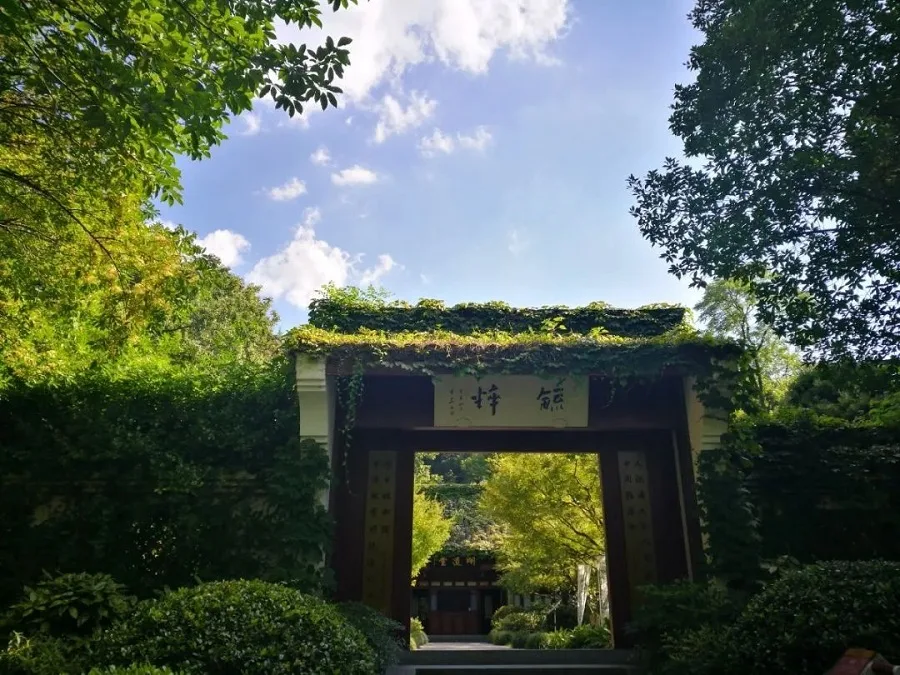
Yangsheng Gate is one of the main buildings of Wansong Academy. The phrase “Gao Shan Yang Zhi” (高山仰止) is derived from Sima Qian’s “Records of the Grand Historian.” “Yangsheng” expresses reverence and admiration for Confucius. It serves as a reminder to visitors to enter the academy with proper attire and a respectful attitude. Yucui Gate is the second gate on the central axis of the academy. “Yucui” means to cultivate knowledgeable and virtuous individuals.
Mingdao Hall
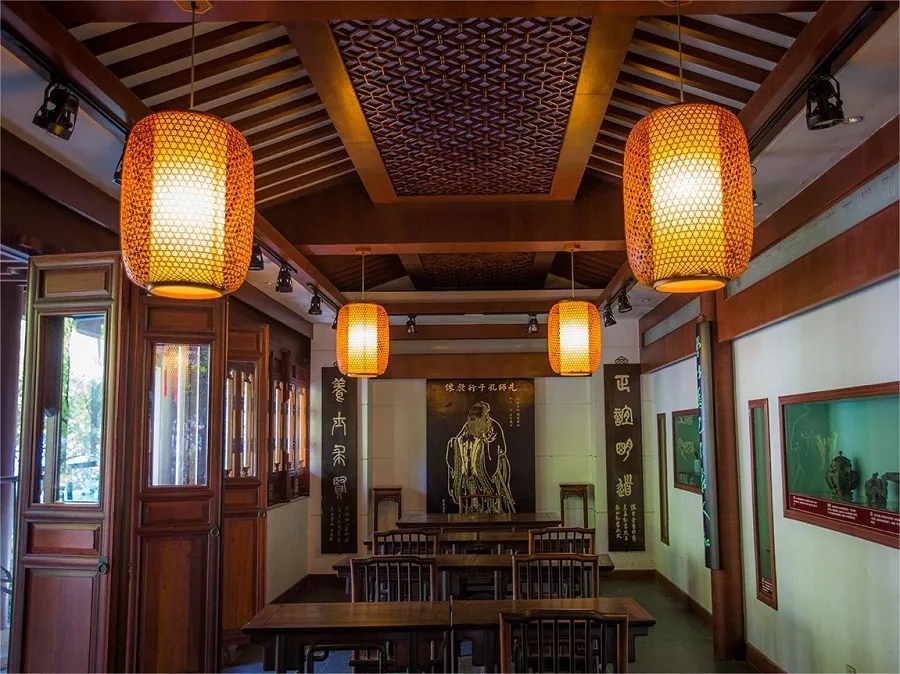
In ancient times, academies fulfilled three major functions: lecturing, offering sacrifices, and housing books. Mingdao Hall serves as the lecture hall of Wansong Academy and currently displays the monumental work “Comprehensive View of the Chinese Imperial Examination System.” The rooms on both sides were originally used as study rooms and dormitories for students. They are named “Juren” and “Youyi,” derived from the saying of Mencius, “One should be kind and righteous, and use oneself to fulfill them,” implying that one who possesses benevolence and righteousness possesses everything.
Dacheng Hall
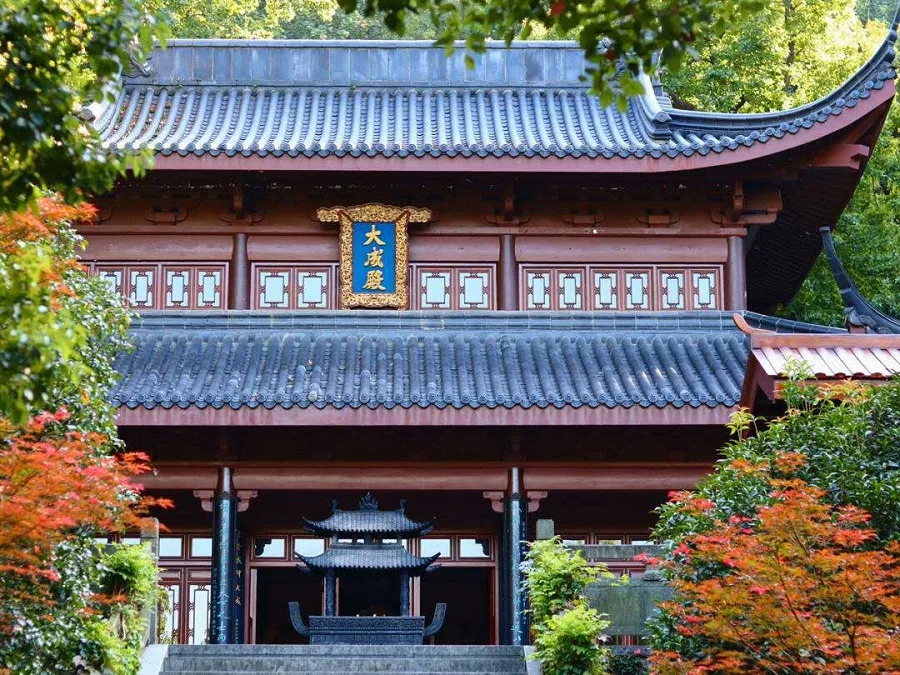
This is where Confucius is worshipped. “Dacheng” is a term used by Mencius to praise Confucius, meaning “Confucius has achieved great success.” Dacheng Hall showcases “Eulogies to the Sage” to extol the great thoughts and profound culture of Confucius. It features a statue of Confucius and four accompanying figures (Yanzi, Zengzi, Zigong, and Mencius), with wall murals depicting scenes of Confucius teaching, reading the Book of Changes, performing ritual dances, discussing politics on Mount Tai, bidding farewell to his disciples, demonstrating loyalty and honesty, serving as a minister to the ruler of Lu, and honoring the Three Ancestors. Bronze sacrificial vessels are also displayed. In front of the hall are the Zengwei and Yanle Stele Pavilions, each containing replicas of inscriptions from the Qing Dynasty emperors Kangxi and Qianlong.
Story of Liang Shanbo and Zhu Yingtai
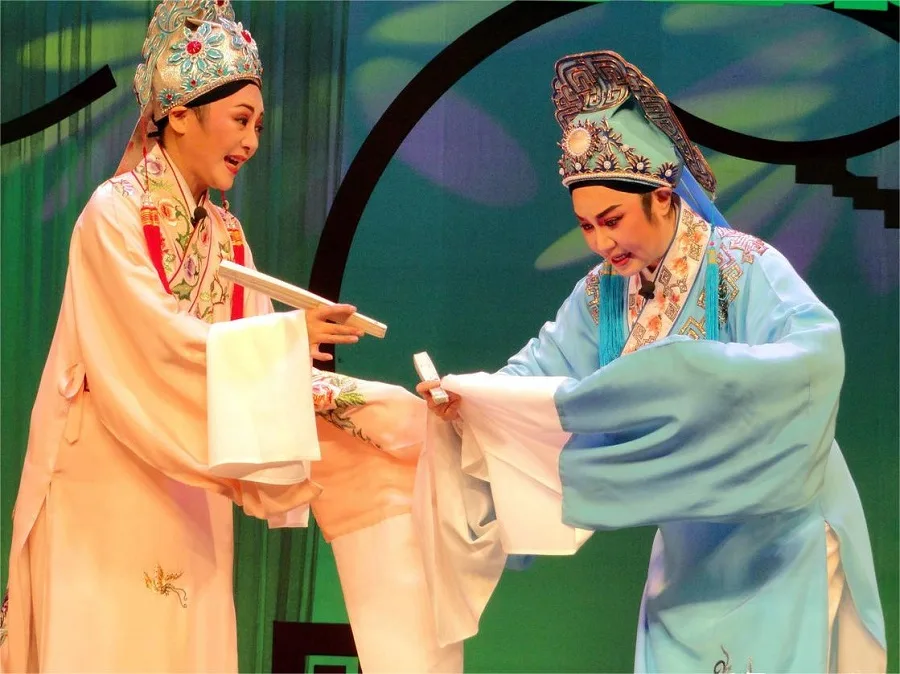
“Liang Shanbo and Zhu Yingtai” is one of the four great Chinese folk love myths. It tells the story of Zhu Yingtai, the daughter of Zhu Yuanwai from Shangyu, Zhejiang Province. Disguised as a man, she travels to Hangzhou to pursue her studies. Along the way, she meets a scholar named Liang Shanbo from Kuaiji. The two immediately form a deep bond and become sworn brothers under a willow tree. They then become classmates at the Wansong Academy in Hangzhou for over three years.
During their studies, Liang Shanbo and Zhu Yingtai help each other academically and support each other in life, forming a profound friendship. Liang Shanbo, being straightforward, never suspects that Zhu Yingtai is a woman, while Zhu Yingtai has long harbored feelings for him. Their three years of studying together, exchanging knowledge, supporting each other, and sharing dreams and ideals, strengthen their bond.
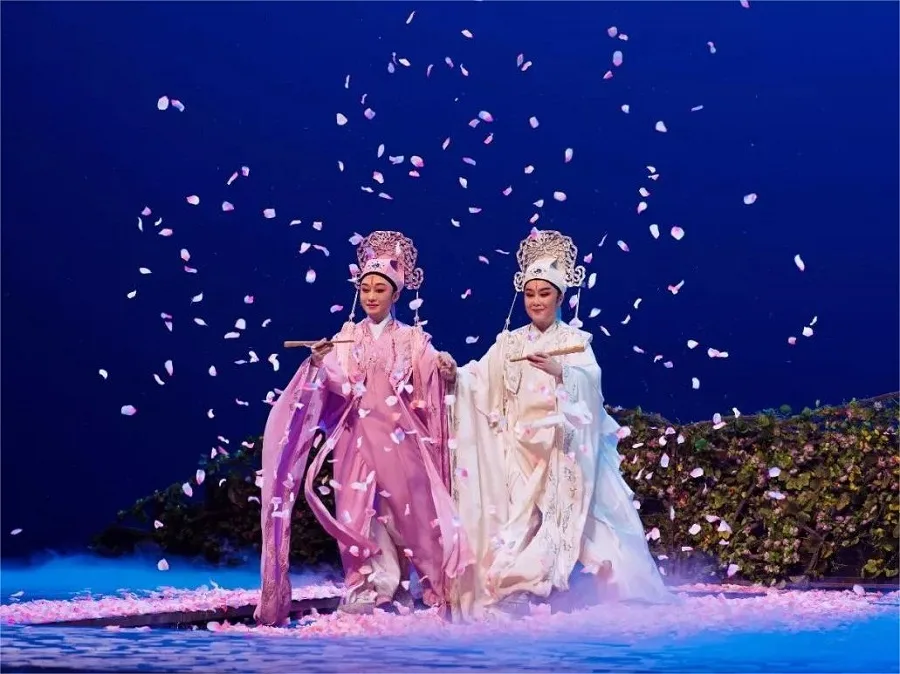
After three years, Zhu Yingtai’s father urges her to return home. Before leaving, Zhu Yingtai gives Liang Shanbo a jade butterfly fan pendant as a token and hints at her true identity multiple times during their farewell. However, Liang remains oblivious until Zhu’s mother reveals the truth to him. Rushing to propose to Zhu Yingtai, Liang discovers that she has been promised to Ma Wencai, the son of the magistrate of Shangyu.
Heartbroken and desperate, Liang Shanbo dies shortly after. Hearing the news, Zhu Yingtai is devastated. On her wedding day, she insists on paying respects at Liang Shanbo’s grave before proceeding with the ceremony. As she mourns at the grave, a storm suddenly breaks out, and the grave splits open. Zhu Yingtai jumps into the grave, which closes behind her. After the storm clears, the sun shines brightly again, and Liang Shanbo and Zhu Yingtai emerge as a pair of colorful butterflies, symbolizing their love’s freedom and rebirth after enduring trials and tribulations.
Vlog about Wansong Academy
Attractions near Wansong Academy

Zhejiang Art Museum
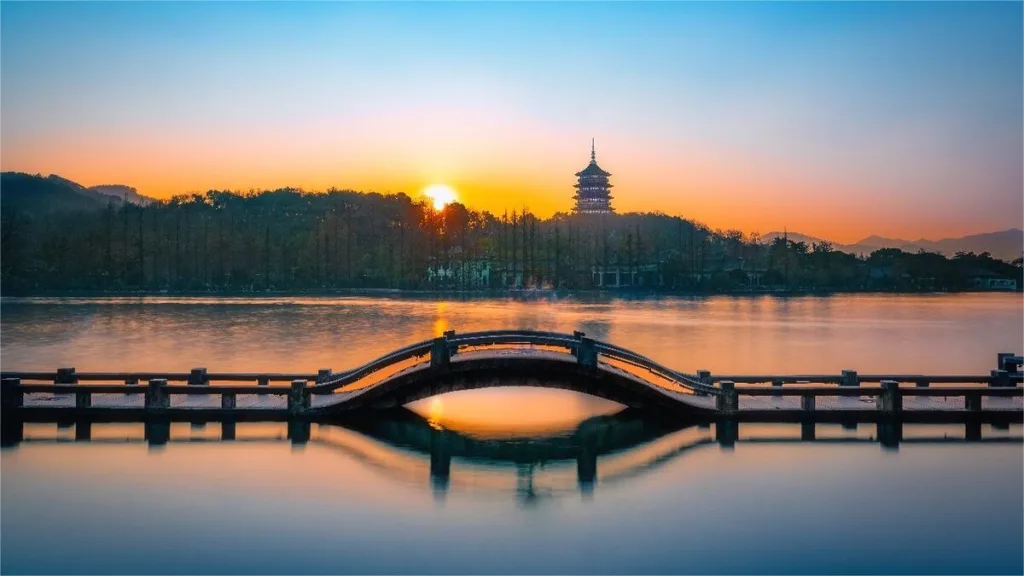
Changqiao Park
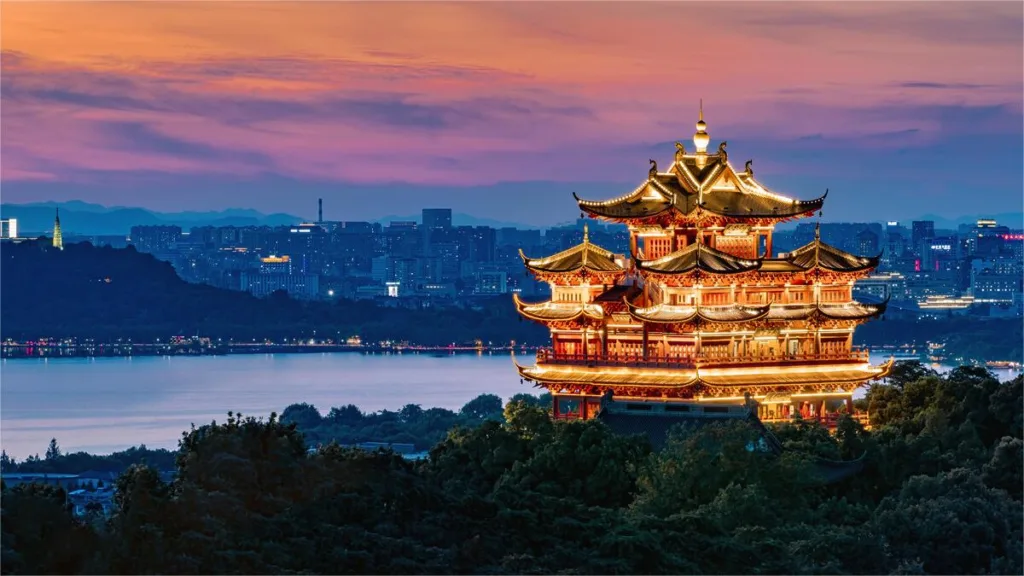
City God Pavilion
Hangzhou attractions, Zhejiang historical sites